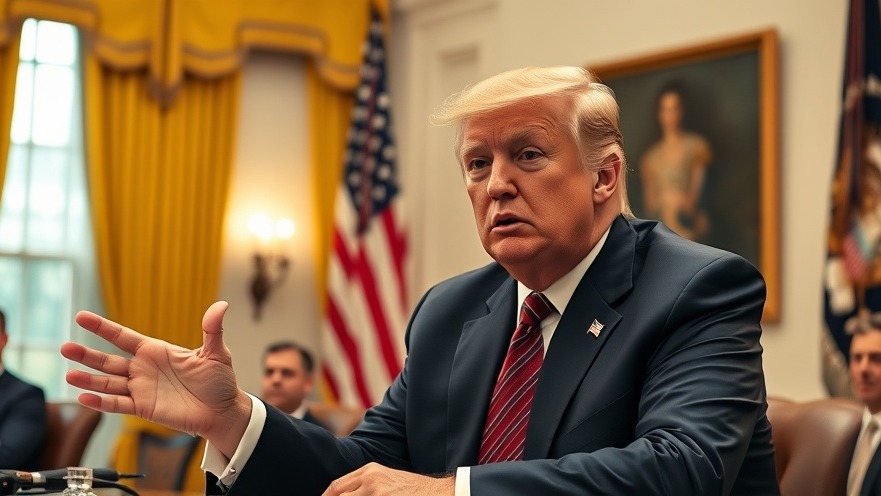
Trump's Tribute: A Roadway Renamed
In a notable event that highlights the intersections of local governance and national political figures, Palm Beach County, Florida, recently voted unanimously to rename a roadway after former President Donald Trump. The new designation, 'President Donald J. Trump Boulevard', will notably run near his Mar-a-Lago estate, a locale frequently tied to his presidency and post-presidency activities.
A Symbol of Local and National Pride
This renaming ceremony not only reflects a local celebration of Trump’s legacy but also serves as a beacon for his supporters and a signal to his political adversaries. Residents and officials in Palm Beach County have made it clear that this decision is perceived as a mark of respect and gratitude for Trump’s contributions to the community and the nation.
In his remarks following the announcement, Trump expressed his gratitude, calling it a "wonderful honor." Such sentiments resonate with many of his supporters who see this action as a validation of his presidency.
Historical Context: Roads as Political Symbols
Renaming roads in honor of political figures is far from a new practice in the United States. Historically, it serves as a method of cementing a political legacy in the public consciousness. From MLK Boulevards to Ronald Reagan Freeways, these honorary dedications reflect the cultural values and political histories cherished by regions across the nation.
Florida’s decision is indicative of a broader trend where local governance intersects with national political narratives, often exacerbating the divisions within the electorate. As communal hubs, highways and boulevards become places for politicians to be memorialized, sparking conversations about their legacies – both positive and negative.
The Political Implications of Such Decisions
The decision to name a road after Trump could have implications not just locally, but nationally, as it represents a microcosm of the Republican Party's current landscape. As political polarization increases in the United States, acts such as this—celebrating specific figures—can serve to galvanize support amongst loyalists while also challenging dissenters.
Critics might argue that such renamings can deepen divisions within communities, often triggering discussions that evoke contrasting viewpoints on electoral integrity, governmental conduct, and social policies enacted during Trump's presidency. The streets we navigate daily can indeed serve as reminders of political allegiances.
Future Trends in Political Landmarks
As America continues to grapple with its complex heritage, we may observe more counties taking steps to memorialize leaders from recent histories. This movement could enhance the visibility of political figures and shift public perception regarding their legacies based on contemporary societal values.
Moreover, as new political figures emerge and civic attitudes change, the future might involve regular updates to the landscapes of our communities, reflecting the evolving sentiments of the electorate.
Takeaway: More Than Just a Name
Ultimately, the renaming of a roadway like this goes beyond its physical existence; it symbolizes administrative support for a political narrative and aligns with a national debate about identity, governance, and history. For many Floridians and supporters across the nation, it solidifies their hopes and beliefs surrounding the Trump legacy.
As communities continue to engage in discussions around the names they choose to honor, the pivotal question remains: what does a name contribute to the collective consciousness and the shaping of future public discourse?
In conclusion, while this renaming may be celebrated by some, it is essential to recognize the multifaceted implications and the dialogues it can ignite beyond Florida's borders.
 Add Element
Add Element  Add Row
Add Row 



Write A Comment